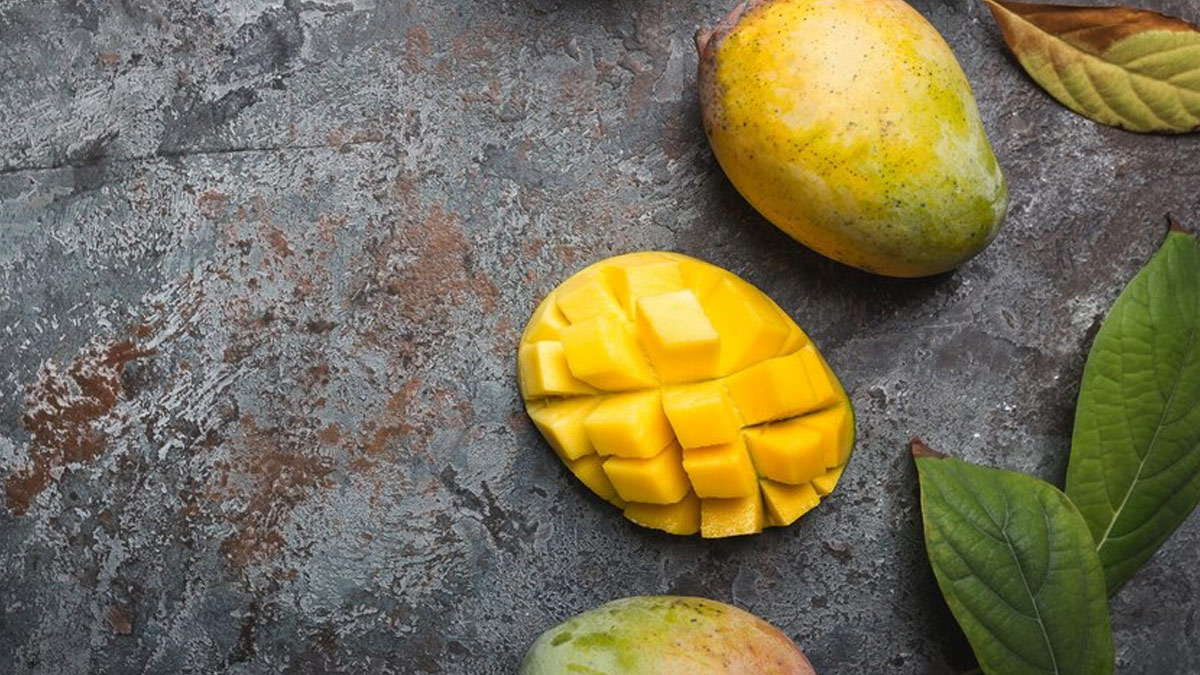
Mangoes, known as the ‘king of fruits,’ are not just delicious but also offer a treasure trove of health benefits. While we often savour the juicy flesh, the often-overlooked mango peel holds remarkable properties that can contribute significantly to our well-being, including reducing the risk of cancer.
Table of Content:-
According to a study published in Scientific Reports, mango peels and mango extracts work in different ways to combat cancer. They are strong antioxidants, which means they reduce oxidative stress in the body, slow down cell growth and promote cell death in cancer cells, and they have an anti-estrogenic effect, which helps regulate estrogen levels and can be beneficial in breast cancer treatment.
Moreover, the study found that these extracts do not cause any side effects when used alone. They have been found to have a therapeutic impact against breast tumours, suggesting they could be effective in treating breast cancer.
Here is a plethora of health benefits that mango peels offer and their potential in cancer prevention.

Rich in Antioxidants
Mango peels are packed with antioxidants, including flavonoids, phenolic compounds, and carotenoids. These antioxidants combat oxidative stress and neutralise free radicals in the body, which are linked to the development of cancer and other chronic diseases.
Anti-inflammatory Properties
Chronic inflammation is a contributing factor to cancer progression. The above-mentioned study has shown that compounds present in mango peels exhibit potent anti-inflammatory effects, reducing inflammation markers and potentially inhibiting the growth of cancerous cells.
Phytochemicals for Cancer Protection
The phytochemicals found in mango peels, such as mangiferin and quercetin, have been studied for their anticancer properties. These compounds interfere with cancer cell growth, induce apoptosis (cell death) in cancer cells, and inhibit angiogenesis (formation of new blood vessels that supply tumours).

Also Read: Are Mango Peels Edible? Benefits And Concerns About Eating Mango Skin
Immune System Support
A robust immune system is crucial for defending the body against cancer. Mango peels contain vitamins, minerals, and bioactive compounds that bolster immune function, enhancing the body's ability to recognise and eliminate abnormal cells, including cancer cells.
Gut Health and Cancer Prevention
The gut microbiota plays a vital role in maintaining overall health, including immune regulation and inflammation control. Mango peels, with their prebiotic fibres and beneficial compounds, support a healthy gut environment, which indirectly contributes to lowering cancer risk.
Including Mango Peels in Your Diet
Now that we understand the potential of mango peels in reducing cancer risk, here are some simple ways to include them in your diet:
- Smoothies and Juices: Add a small piece of mango peel (thoroughly washed and peeled) to your smoothies or juices for an extra nutrient boost.
- Salad Toppings: Finely chop or shred mango peel and sprinkle it over salads for a tangy and nutritious addition.
- Homemade Mango Peel Tea: Steep dried mango peel in hot water to create a refreshing and antioxidant-rich tea.
- Culinary Uses: Include mango peel powder into recipes like marinades, sauces, or baked goods for a flavourful twist.
Mango peels, often discarded as waste, possess potent anticancer properties that deserve recognition. By harnessing the natural compounds found in mango peels, we can fortify our bodies against cancer and promote overall health. Embrace the holistic benefits of mangoes, from the juicy flesh to the nutrient-packed peel, and take a proactive step towards reducing cancer risk through mindful dietary choices.
Also watch this video
How we keep this article up to date:
We work with experts and keep a close eye on the latest in health and wellness. Whenever there is a new research or helpful information, we update our articles with accurate and useful advice.
Current Version